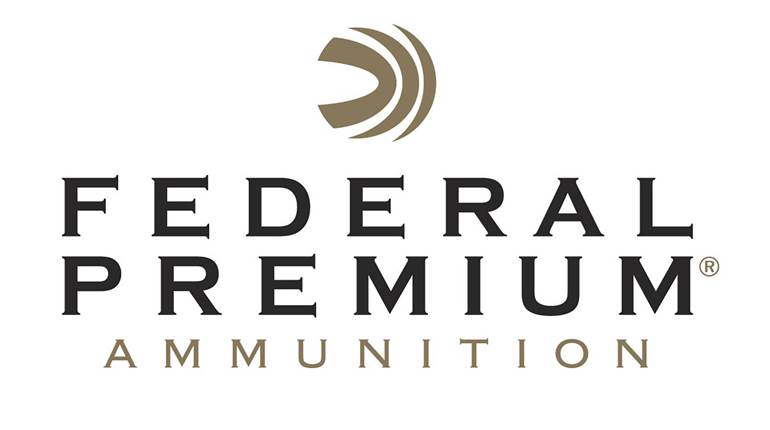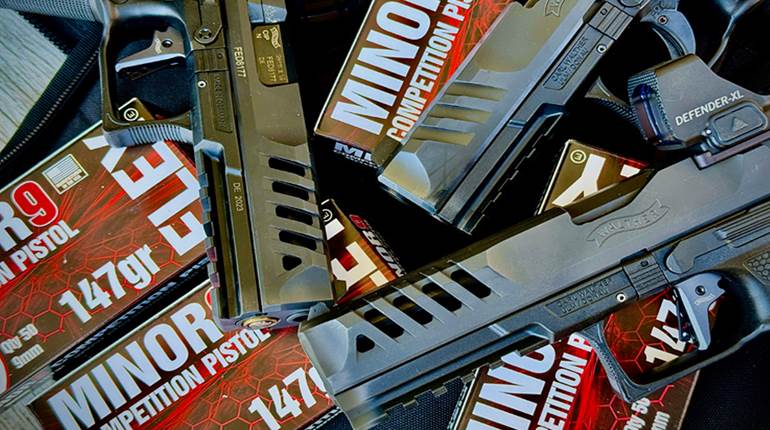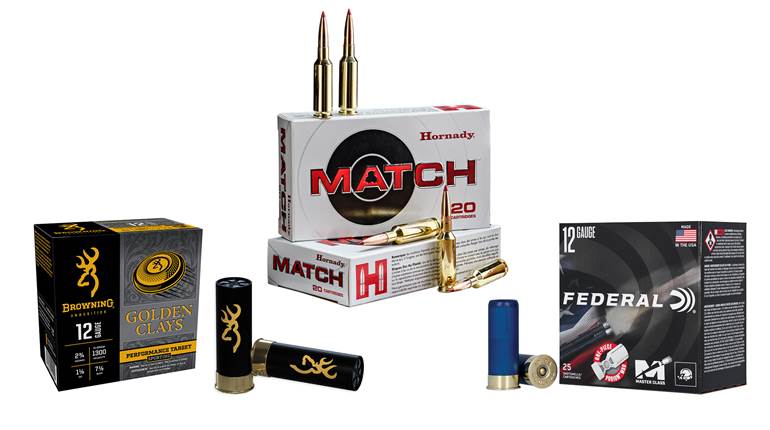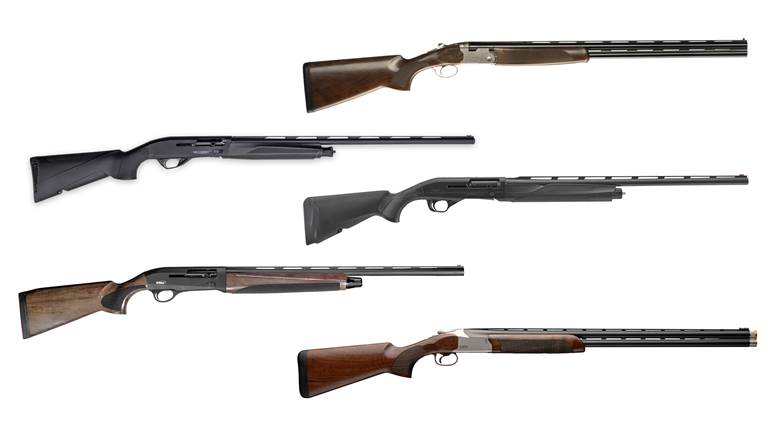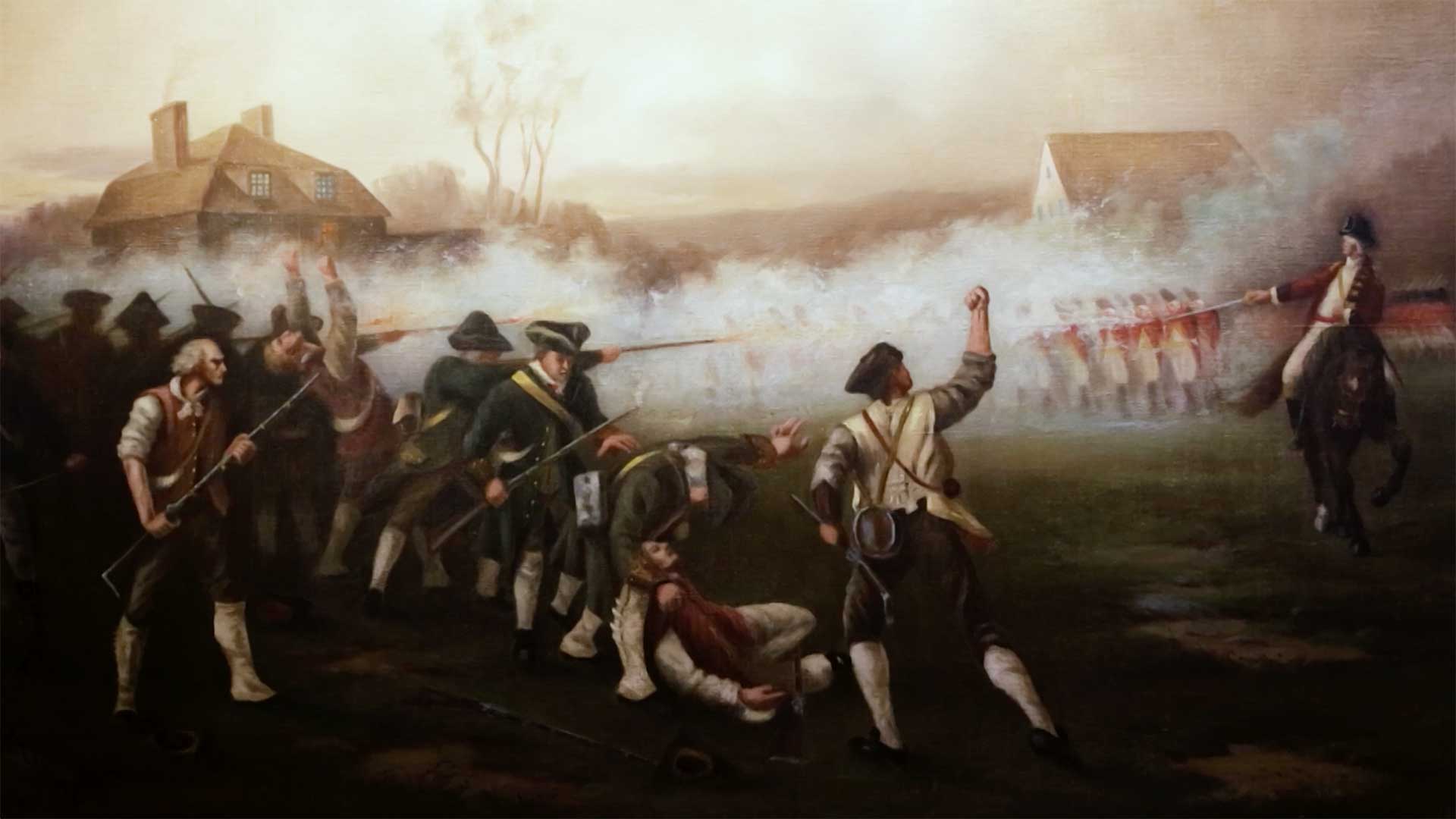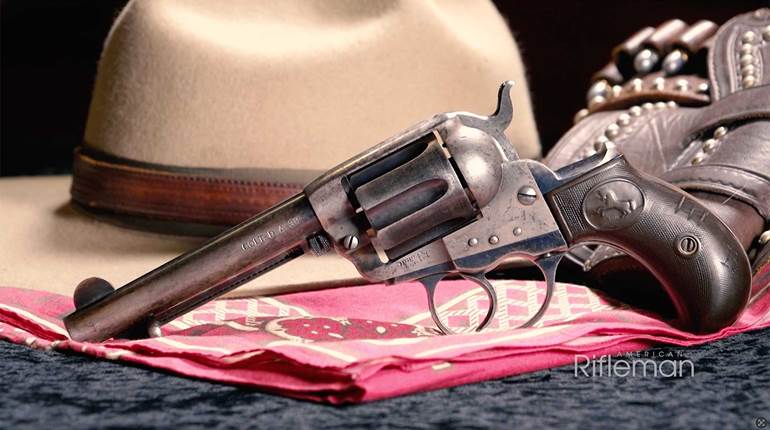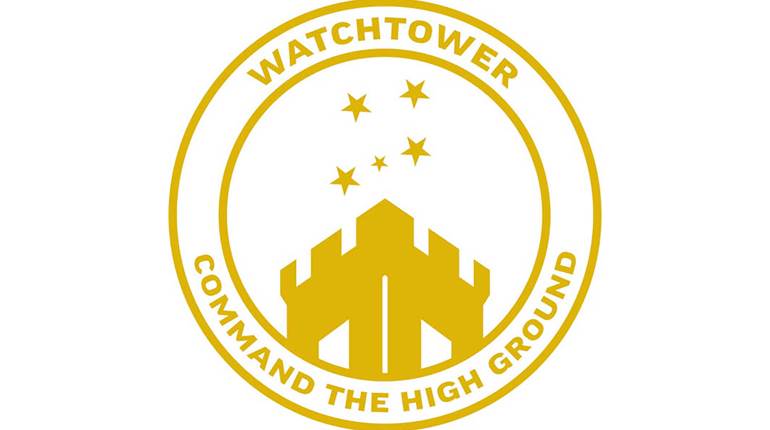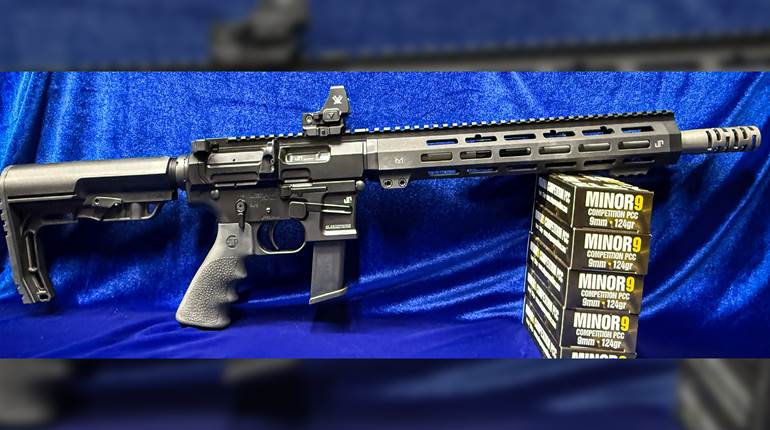
Ammunition purchasers across America—or make that would-be purchasers in record numbers—are finding shelves bare, and unfortunately that’s hardly breaking news. If this was simply a Christmas-season run, we could insert a Grinch joke here and assume things would return to normal after the holidays. But, in fact, this shortage, as many readers can attest, traces back at least to spring when COVID mania shocked the country and has since intensified under an unprecedented chain of cultural phenomena. Many gun owners feel that the only way to ensure they have ammo when they need it is to buy in bigger-than-normal quantities, and the result is hoarding.
As detailed in a recent “Keefe Report,” nearly any caliber that’ll go bang in whatever quantity is up for grabs is snapped up almost immediately. Consumer frustration is rampant, and there’s a real concern about personal- and home-defense shooters not being able to get ammo they need to be prepared.
Anyone who’s been a gun owner and at least a semi-active shooter going back a decade can remember earlier shortages, and while those were truly galling and nationwide, this one’s different. It’s even more widespread and more pervasive in terms of unattainable calibers—nearly all of them, from what we’re hearing. Like that other lingering current event on everyone’s mind, we’re left wondering: When it will end?
That question is landing in record numbers, too, in the inboxes, customer-help lines and direct attention of nearly everyone working for America’s ammunition manufacturers. We talked to a few key executives who spoke about the inquiries and criticism coming their way—so much of it that, at times, it threatens to impede normal operations—and who shared anecdotal requests that would be comical if the shortage weren’t so serious. They were also frank in answering the question about when relief will come, and while there are bits of good news, the outlook for returning to normal supply-and-demand in 2021 remains murky.
Let’s start with Jason Hornady, vice president of Hornady Manufacturing, who flatly stated that when it comes to hoarding-induced shortages, “Ammunition is the new toilet paper. Last week I met a guy on a deer hunt who was shooting Hornady .33-378 loads. He said he’d managed to buy 20 boxes of it—expensive stuff, by the way—and in fact had bought 20 boxes for each of his guns. I asked ‘how many guns?’ and he said, ‘I have 12, so 2,400 rounds. It cost me over $3,000.’ The big problem here—we’ve seen it before, but not like this—is folks panic thinking they won’t be able to get any more and so buy more than normal. Like they did with .22 rimfire a few years ago. And primers before that. And that’s the cause of this shortage.
Hornady continued, “In fact we saw [demand indicators] in the fall of 2019. First when Walmart stopped selling high-consumable ammo, and later when protests to Virginia’s incoming anti-gun legislature made the news. We saw a pretty good lift [in sales] in December 2019, were up 18 percent in January, and 18 percent in February. That came a few months after the ‘bearded one’ [Jason’s dad, company president Steve Hornady] had been yelling at me about having too much inventory on hand.
“In March, we were up 86 percent and that did it—the inventory was gone. We literally emptied our building. Since then, the sales increase is back to 15 percent a month because that’s all we can manage. Literally, we make it one day and ship it the next.”
Vista Outdoor CEO Chris Metz also weighed in on the scope of the shortage. “After seeing big sales spikes as a result of COVID, civil unrest and then so many more people getting out this year going hunting—license sales are up like crazy—with all that, we never did see the customary general-election increase.
“But ever since Joe Biden was named the presumed presidential-election winner, we have seen a reaction in the marketplace, and it hasn’t subsided at all. So, through all that, we’ve been producing ammunition flat-out, and yet our retailers are not able to maintain any inventory to speak of.
“Demand has been strong across the board—any type or caliber of handgun ammo; small rifle, big rifle, hunting rifle; even rimfire—all of it really picked up.
“And we’re not seeing an end,” said Metz. “We talk to a big database of users on a monthly basis, and one thing we’re noting is that what we call ‘heavy shooters,’ those who shoot 10,000 rounds or more per year, a lot of them haven’t been purchasing. They’ve seen the frenzied activity and are holding back in hopes it’ll subside. Well, we all know what's going to happen when they work through their stockpiles and at some point, come back to the market. So, no, we don’t foresee any slowdown in the demand in 2021.”
Jason Hornady vowed his company is doing everything it can to meet that demand but not without concerns. “Our workforce has pushed hard through this but is fatigued. We have an issue finding people to keep the machines running, and trust me, everyone is working a lot of hours,” he said.
“I was in a camp back in September where someone commented that such-and-such gun company was ‘shipping only 20 percent more than last year’ and that ‘they just don’t care about making more.’ Please. There’s no factory of any kind that doesn’t want to make as much as they possibly can. That’s us. We’re doing as much, making as much as we can,’ said Hornady. “For 2020, we’ve shipped 30 percent more than we did a year ago. We are adding capacity, but according to an existing plan.
“I’ve seen shortages six times in my career,” said Hornady, “but the difference this time is the string of events—Walmart, Virginia [anti-gun legislature], coronavirus, riots, an influx of [6-7 million] new gun owners, a bad election. It all adds up. Right then, hunting season comes along, and you know what consumer is the maddest? The ones who normally buy two boxes of deer ammo a year. They go into their local gun shops and can’t believe [the shelves are bare]. Our local gun-store owner called to tell me about two guys who came into his place looking for hunting ammunition, and then they told him that Hornady has been shut down since June. Crazy!
“At the same time, COVID is a reality for us, too,” said Hornady. “If an employee has to quarantine, even if they’re not sick, we can’t just send a loading press home with them. We’ve had to spread out and guard against super-spreader events so that it won’t shut down a big part of the factory.”
Both industry leaders cited shortage of raw materials as a concern, too. Hornady said his firm laid in a “… six-month supply at the first signs of how serious COVID might be. We’re grateful that we did, but when you have a six months’ worth of material, you also have a space problem. And not just copper and lead, it’s also packaging, staples and other supplies. Did you know there’s a shortage on the DOT-approved cardboard required for shipping our loaded ammunition? We’re now having to ship in white boxes instead of brown ones because we can get more of that.”
Chris Metz echoed that, saying it’s been challenging for his ammunition brands—Federal, Speer and CCI to keep enough brass and primers on hand, despite the fact that Federal and CCI are two of the world’s biggest primer manufacturers.
The same has been true for Vista’s newest brand, Remington Ammunition, which the outdoor conglomerate acquired in September. “Both the workers at Remington and those of us from Vista see this as a marriage made in heaven,” said Metz. “And it couldn’t have come at a better time from a capacity standpoint. That factory wasn’t working, which contributed to the shortages.” The high-production facility in Lonoke, Ark., which for decades has produced the familiar green-and-yellow-boxed ammunition, is ramping up this month, offering one glimmer of hope that the supply side will be buoyed.
“We’ve been working to rehire 400 to 600 furloughed workers, have been retraining them and getting the manufacturing processes back in place,” reported Metz. “Supplies of Remington ammunition should be coming back on the market in early January. We all grew up with the brand, we love it, and we know we’re not alone.”
It will also be interesting to see if some of the other names in U.S. ammunition manufacturing are able to step up production on the heels of developments in this pivotal industry segment. SIG Sauer, for one, is operating an ultra-modern plant in Jacksonville, Ark., and its loads have gained traction with several gun-owner segments.
Sierra Bullets began selling its own branded cartridge a few years back, primarily hunting rifle cartridges, but the company made a strong growth statement when it acquired Barnes Bullets during the Remington Outdoor Corp asset sell-off in late September. The Barnes installation in Mona, Utah, while not as large as the legacy brands’ plants, has a history of producing a full range of highly regarded rifle and pistol ammo, and now that it’s out from under the Remington corporate umbrella, is expected to again contribute more to the national supply chain.
A third maker that bears watching is Fiocchi USA, which announced in July that it will be expanding its stateside manufacturing by adding a facility in Little Rock, Ark., to supplement an existing plant in Missouri. Expect to see an expansion in domestic-made Fiocchi product lines, which produces top-quality rifle, pistol and shotshell products. Furthermore, Fiocchi announced it has acquired Baschieri & Pellagri, whose high-end shotshells are the gold standard for many European clays competitors and hunters, and they too will be produced in the United States.
When contacted, a spokesman for the Winchester and Browning ammunition brands simply commented: “Like many manufacturers in the shooting-sports industry, we are experiencing extremely high demand for our products. We are continuing to manufacture and ship our high-quality products on a daily basis.”
Those final words really tell the tale. All hands in the ammunition industry are waging a daily battle to meet the unprecedented demand. Though there are a few reasons to expect supply to increase, those who know this market best are forecasting continued shortfalls. AmericanRifleman.org will keep you posted as developments occur.












